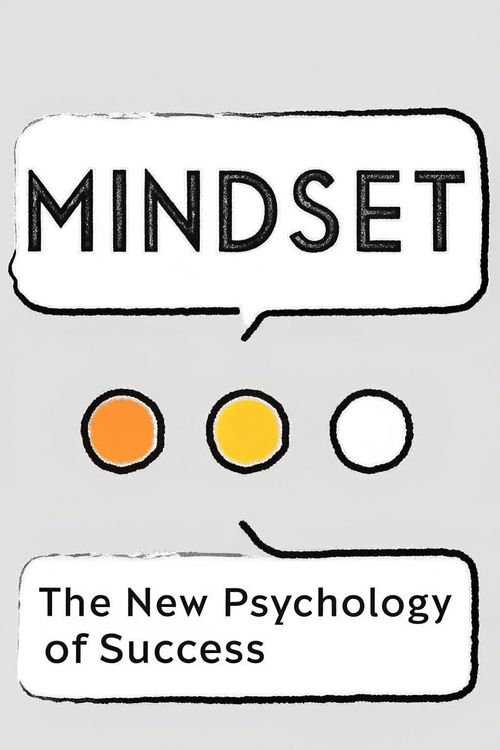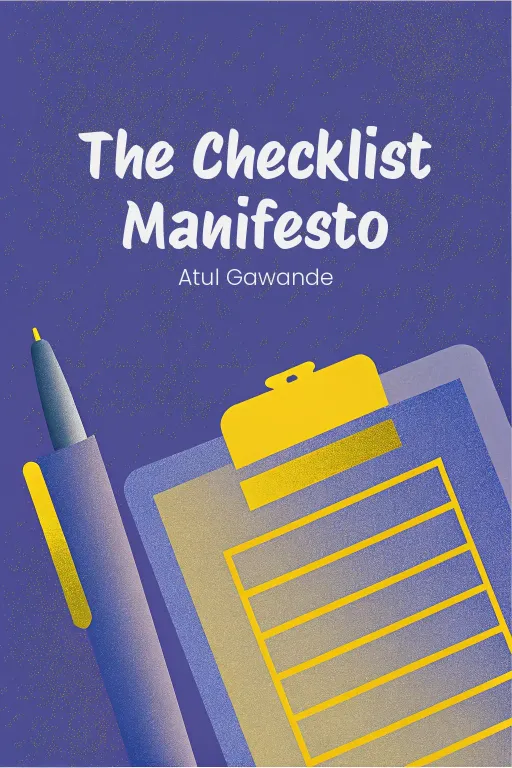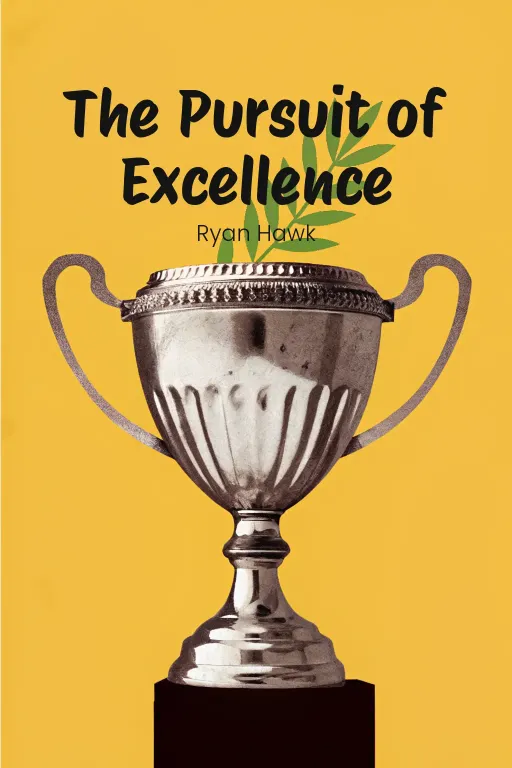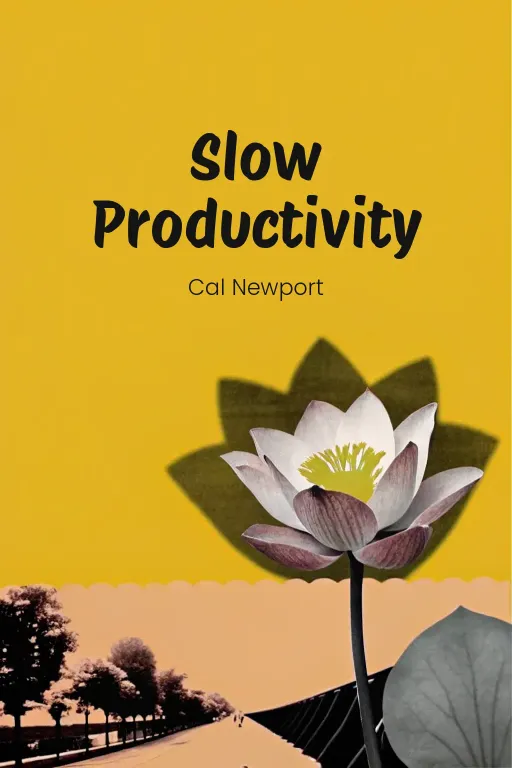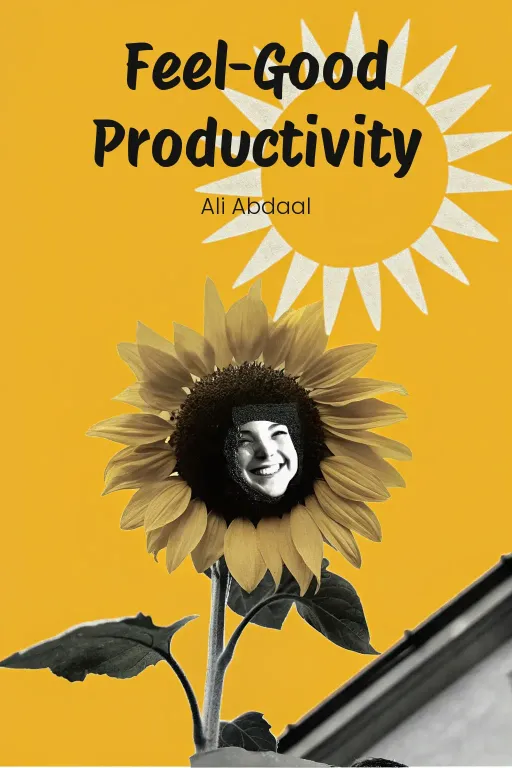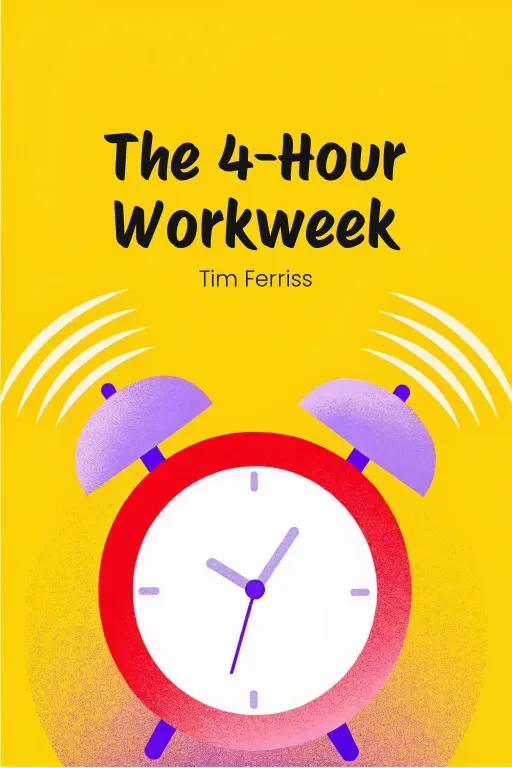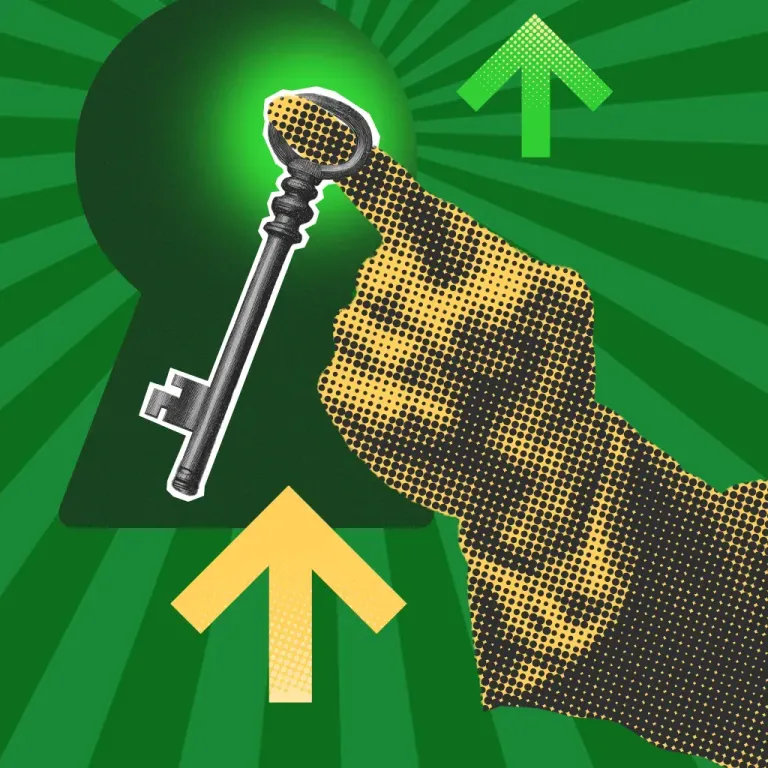
Domino Your To-Do List: Focus for Success
Podcast by Beta You with Alex and Michelle
The surprisingly simple truth behind extraordinary results
Domino Your To-Do List: Focus for Success
Part 1
Alex: Hey everyone, welcome back! Let me start with a question that I think we all can relate to. How often do you feel like you're juggling a million things, but at the end of the day, nothing really feels complete? Michelle: Alex, are you describing my entire existence? Multitasking, or so-called multitasking, is basically my default mode. I mean, if I'm not answering emails while scheduling calls and, you know, skimming through Twitter, am I even being productive? Alex: And there you have it, Michelle, that’s the crux of our conversation today. We’re going to discuss The ONE Thing, a book that dares to say multitasking is not only a little overrated, but actually crushes our productivity. Forget trying to do it all—this book argues that real, extraordinary success comes from focusing on, you guessed it, just one thing. Michelle: Hold on, one thing? That sounds… almost too easy. I'm already raising an eyebrow here, Alex. Alex: I know, it sounds a little simplistic at first. But listen, it's not about dumbing down life. It’s about cutting through the noise and pinpointing that one critical priority—that one action that, once completed, either makes everything else easier or makes a bunch of other stuff just go away. Michelle: I see, so it's not necessarily about doing less, but about doing the “right” thing? Okay, I'm listening. Alex: Exactly! So, here's what we're breaking down today: First, we’re going to debunk some popular productivity "lies"—things like multitasking and the always elusive, perfect "work-life balance." Then, we'll dive into the truth about prioritization, and how building momentum can create this incredible domino effect. And finally, we'll look at ways to turn focused effort into real, lasting success through mastery and accountability. Michelle: Lies, momentum, and mastery? Sounds like we’re dissecting the productivity playbook piece by piece. Let’s see if this “one thing” idea can stand up to my scrutiny. This sounds like a good time.
The Lies that Derail Success
Part 2
Alex: Alright, Michelle, let's dive into the lies that can really throw us off track when we're trying to achieve something meaningful. These are the common misconceptions that hold us back, making it harder to reach our goals. This is foundational to the book, and it’s all about identifying what doesn't work, so we can clear the path for what does. And first up, Multitasking. Michelle: Multitasking, huh? The darling of the corporate world! It's almost a badge of honor these days, isn't it? People brag about juggling emails, presentations, and Zoom calls, all at the same time. So, let me guess, Alex – it's a myth? Alex: Absolutely. The book, backed by solid research, calls multitasking an “illusion” of efficiency. We feel like we're getting more done by juggling multiple tasks, but the opposite is actually true. There's this study by Stanford researcher Clifford Nass that’s pretty eye-opening: people who think they're good at multitasking actually perform worse than those who focus on one task at a time. They struggle with distractions, information retention – the whole nine yards. Michelle: So, you're saying multitaskers aren’t just juggling badly, they’re dropping the wrong balls? Didn't Clifford Nass even have a phrase for them? Something like… "suckers for irrelevancy"? Ouch. That stings a little. Alex: Exactly! And it all comes down to how our brains function. Every time we switch between tasks, there's a mental reset that needs to happen. This "task switching" is like constantly rebooting your computer – it wastes time and energy. Studies even suggest it can steal up to 40% of your productive time. Michelle: Forty percent? That's… insane. Okay, let me paint a picture. I'm working on a report, and then a Slack notification pops up, followed by an email, and then I decide to check Instagram for "just a minute." Are you saying each of those interruptions is costing me serious productivity? Alex: You've got it. And it's not just about time; it's about emotional and physical energy too. Multitasking creates stress and this constant feeling of being rushed. You're never truly present, whether you're working or spending time with family. Ever feel like you're spread so thin you're not doing anything well? That's multitasking in action. Michelle: Alright, Alex, you've convinced me – multitasking is the enemy. But how do we actually combat it? The world's not going to stop throwing distractions our way just because we want to focus. Alex: The book offers some really practical strategies. One is “time blocking”. This means scheduling specific blocks of time for focused work. During those blocks, you eliminate distractions: close unnecessary tabs, mute notifications, and let people know you're unavailable for anything other than The ONE Thing. Michelle: I've heard of time blocking, but I haven’t fully committed to it. What else have you got? Alex: Another great technique is the Pomodoro Technique. You focus on a single task for 25 minutes, then take a 5-minute break. It's great for maintaining focus without burning out. Michelle: Okay, Alex, multitasking, you're gone! But what about the next lie: the myth of work-life balance? That sounds like such a beautiful ideal. Who doesn’t want balance? Alex: I get it, Michelle. The phrase "work-life balance" sounds idyllic – like there's some magical state where everything aligns perfectly. But here's the reality check: balance is often a mirage. If you're constantly trying to divide your energy equally between work, family, friends, hobbies, you'll end up feeling stretched thin across the board. Michelle: So, we're chasing something that doesn't even exist. But what's the alternative? Completely letting the scales tip in one direction or another? Alex: Well, the book introduces the concept of counterbalancing, instead of balance. It means leaning into one priority when needed and temporarily letting go of less critical areas. For example, if you're launching a business, you might pour all your energy into that for months. Your social life may take a hit, but the idea is to re-adjust later, once you've found some stability. Michelle: That makes sense. It’s like the ballerina analogy in the book, constantly making micro-adjustments to stay poised, right? Alex: Exactly! Achieving significant results often requires short-term imbalance. The key is to maintain awareness – checking in periodically to make sure nothings being neglected for too long. Michelle: So, it's not about perfect equilibrium, but about priorities shifting in seasons, isn’t it? Maybe at one stage, work dominates, and in another, it's family or personal goals. Alex: Exactly! The book even offers a practical approach for counterbalancing. First, identify your current top priority, whether it's professional, personal, or relational. Then, accept that other areas might temporarily take a backseat. And finally, set markers to periodically reevaluate, so you don't neglect what matters most. Michelle: Let me guess… kind of like a compass bearing? Even as the terrain changes, you’re checking to see if you’re still on course. Alex: Exactly. And speaking of course corrections, the book also tackles the idea that willpower and discipline are the ultimate keys to success. That may be another lie. But before we get there, any lingering doubts about multitasking or the myth of balance? Michelle: No, Alex, you’ve effectively ruined my multitasking habit and made me question the whole concept of balance. Let’s keep going.
The Truth - The Path to Productivity
Part 3
Alex: Exactly, Michelle. That's the perfect segue because that brings us to the core truth of productivity – the path forward. By debunking these common productivity myths, we're really paving the way for understanding what actually works. And that's where the book “really” shines, in my opinion, presenting solutions that are practical, logical, and genuinely transformative. Let's kick it off with the big one: the Focusing Question. Michelle: Ah, yes, the star of the show. "What's the ONE Thing I can do such that by doing it everything else will be easier or unnecessary?" Right, that's the question? It sounds so straightforward, doesn’t it? And yet, my first thought is, how does one even begin to answer that? Alex: Well, that's actually the beauty of it, Michelle. On the surface, it's simple, but it then forces you to really drill down on what truly matters. Instead of just reacting to the million things on your plate, you're constantly asking yourself, "What's the one critical thing that'll have the biggest impact?" It's like a laser beam for clarity. Michelle: Okay, let's ground this in a real-world scenario. Imagine someone with a never-ending to-do list—let's say a small business owner, constantly pulled in a hundred different directions. How does asking this magic question actually save them from drowning, you know? Alex: That’s a perfect example. Before using the Focusing Question, they might think things like client meetings, fixing invoices, updating their website, and responding to social media are all equally important. But when they ask, "What's the ONE Thing I can do such that by doing it, everything else will be easier or unnecessary?" Maybe they realize it's perfecting their core product. By making that product great, they attract more clients naturally, which then reduces the need for endless hustling later on. Michelle: So, instead of playing a never-ending game of whack-a-mole, they're stepping back and essentially building a system that knocks out most of those moles for them. It's kind of like one of those "teach a person to fish" parables. Alex: Exactly. And it’s also worth mentioning that the Focusing Question isn't just about cutting through the noise, it’s about aligning your daily actions with your long term goals. You can almost think of it as – decision-making with a purpose. When you begin your day with that question every day you see the dominos lining up. Michelle: Ah, speaking of dominos, here comes my favorite metaphor—the Domino Effect. The Domino Effect part feels like productivity philosophy meets science fiction. A tiny, insignificant domino topples over and somehow takes down a mountain. Alex: close! It's actually rooted in science. Physicist Lorne Whitehead found out that a domino can knock over another domino 50% larger than itself. So, with just a little push at the beginning, you're setting off a chain reaction where the impact grows bigger and bigger. And the book cleverly turns this into a life lesson: start with the smallest, most doable thing, and let the momentum build. Michelle: I love visualizing things. Humor me - how might this happen in real life? Let’s imagine somebody wants to make changes to their unhealthy lifestyle. Where would they even begin because it appears to be so overwhelming, right? Maybe diet, exercise, sleep, stress? Alex: They start by identifying their lead domino. Maybe it's as simple as drinking more water each day. That little action starts a chain reaction. Better hydration gives you more energy, which makes doing exercise feel less scary. Exercise improves sleep, which then lowers stress. Suddenly, without having to fight everything at once, they've transformed their health gradually. Michelle: So, it's not about carrying a boulder uphill; it's pushing a pebble that rolls down and creates an avalanche. I can’t decide if that’s inspirational or terrifying. Alex: Inspirational, Michelle! “Definitely” inspirational. Because that's the point, big results don't come from superhero efforts. They come from finding and focusing on the next strategic domino, that one move that matters most. Michelle: Alright, I'm on board so far. But identifying the domino and asking the Focusing Question seems easier said than done. Distractions are everywhere. And let’s not even get started on the guilt of saying “no.” Surely the book's got some solutions in store? Alex: Great lead-in cause those solutions are crucial. First up is time blocking. This isn't just another productivity hack; it's a real strategy. You set aside specific times just for working on your ONE Thing, and you don't compromise that time. No distractions, no quick glances at your phone. Michelle: Let’s say I’m a writer trying to finish a novel. I’d block off my mornings, just for writing, instead of binging Netflix and hoping inspiration strikes at 3 a.m., right? No meetings, no distractions? Alex: Exactly! And over time, those consistent blocks add up to real progress. Another important thing here is learning to say "no." Once you know your ONE Thing, you have to protect it - turning down things that don't match your main focus. That may mean skipping unnecessary meetings, putting side projects on hold, or even turning off notifications. Michelle: Okay, saying no to distractions is easy in theory but I’ll admit it - there’s guilt involved. Who hasn’t felt bad turning down a request or missing a social event? Alex: True, but here's a key point: every yes to one thing is a no to something else. So, if you’re saying yes to all these distractions all the time, you’re unconsciously saying no to your priorities. The book really shows us this – it's not about selfishness, it's about purpose. Michelle: I like that perspective. Intentionality instead of guilt. Alright, we’ve got the Focusing Question, the Domino Effect, time blocking, and saying no. Wow, Alex, this is shaping up to be an instruction manual for actually getting things done. Alex: Well, it's designed to be, really. Remember, the key here is how focus and momentum work together, turning small actions into extraordinary results. You just find your starting domino, knock it over, and keep going by blocking time to keep yourself going forward. Michelle: And if distractions creep in? Alex: You just remind yourself - what’s your ONE Thing? By using that question to guide every choice, you stay on track. Ah, and here’s the genius of it all: with time, focus becomes a habit. That momentum takes over, and what you once felt was hard work turns into a natural rhythm. Michelle: Okay, Alex, I've gotta admit, this is making me rethink how I approach productivity. It's not about doing all the things – it's about doing the important things. But let me ask you this: does the book share any real-world examples of these principles in practice? Alex: It does, but we’ll get into those next time. For now, consider Intel’s change in the 1980s. They eliminated less important markets and only focused on one thing: microprocessors, which then turned them into a giant. Their ONE Thing reshaped everything. And that's the power of focus. Michelle: Focus, momentum, time blocking, and the courage to say no. Well, Alex, you may have just turned me into a single-tasking convert!
Mastery and Accountability
Part 4
Alex: So, with those principles in place, we naturally come to the question of how to actually live them, integrating them into our long-term goals. That brings us to one of my favorite parts of The ONE Thing: mastery and accountability. It’s all about long-term application, and really, personal growth and sustainability. Michelle: Long-term application, huh? So, no more quick fixes? Is this where we get into the weeds of, “Okay, how do I actually stick with this…forever?” Sounds a bit…intense, Alex. Alex: It can definitely feel that way! But think of it like this: it's the difference between a sprint and a marathon. Extraordinary results aren’t about bursts of effort, they are about consistent dedication, leveling up, and staying committed for the long haul. First step? Understanding mastery. Michelle: Okay, "mastery"—that sounds intimidating. I immediately think of a Yo-Yo Ma or a Mozart and feel instantly unqualified. Tell me, this isn’t about being a born genius, right? Alex: Absolutely not! That's a common misconception. Mastery is so much more than innate talent; it's about deliberate practice. Research—like K. Anders Ericsson’s studies—proves that greatness comes from consistent effort. You know, the so-called “10,000-hour rule”? Michelle: Ah, the idea that 10,000 hours makes me an expert? Yeah, I’ve heard of it. But isn't that a bit… simplistic? I mean, I could spend 10,000 hours playing video games and still be terrible at them. Alex: Well, you’d probably enjoy it! But you are right, it's not just about time. It's how you use that time. Deliberate practice involves breaking down skills, focusing on specific areas, and consistently pushing past your comfort zone. It’s like, effort plus refinement. Michelle: I get it. So, it's the difference between actually practicing scales on a piano, versus just banging on the keys and calling it a practice session. Alex: Exactly. Take Eddie Van Halen. He wasn’t just strumming away casually. You know, while others were out having fun, he was methodically honing his skills. That’s deliberate practice. Michelle: Right. And because he was so focused, he didn’t just become a guitarist, he became the guitarist. Inspiring…but also, let's be honest, a bit daunting. Most of us don’t have endless hours to dedicate each day to a single pursuit. Alex: True, but here's the thing: mastery isn't about grinding 24/7. It’s about consistent progress. Dedicate, say, four hours a day to truly intentional practice, Michelle, and it builds momentum. That’s where time-blocking really comes in handy – dedicated time slots for growth. Michelle: Yeah, but... motivation, right? How do you stay motivated when progress feels so slow? Deliberate practice is inherently uncomfortable—you’re identifying weaknesses and exceeding limits. Seems like a recipe for burnout. Alex: A fair point! And that's where mindset comes in—specifically, shifting to what the book calls a “Purposeful mindset” rather than just an “Entrepreneurial mindset”. Michelle: Okay, that sounds like more than just a semantic difference. What exactly is the difference? Alex: It's huge! An Entrepreneurial mindset is, well, enthusiastic and reactive. Think of someone who relies on instinct and brute force; what works, works, until it doesn’t. A Purposeful mindset asks: Am I doing this in the “best” way possible? It's about questioning habits, finding better tools, and constantly pushing beyond "good enough." Michelle: That reminds me of that firewood analogy in the book. One guy just swings an axe and relies on raw energy. The other thinks, “Is there a better way?” and grabs a chainsaw. Work smarter, not harder, right? Alex: Exactly! A purposeful approach makes mastery sustainable. It prevents us from hitting that "OK Plateau"—that point where we stop improving and just settle. You have to constantly reevaluate and question the status quo. Michelle: Okay, devil's advocate time. Isn't there a danger in endlessly questioning things? At some point, shouldn't you just settle on a process and execute? Alex: That’s a great question. Purposeful doesn’t mean overthinking – it means optimizing. Perfection isn't the goal; improvement is. You keep executing, but with an openness to better strategies and tools. Feedback loops become crucial. Regular reflection ensures you're on the right track without just spinning in circles. Michelle: And that ties into accountability, right? If mastery is the continuous act of improving, accountability is the structure that keeps you on track. It’s having someone to make sure you actually follow through. Alex: Yes! Accountability amplifies growth. The research is fascinating—Dr. Gail Matthews found that people are far more likely to achieve goals when they write them down and report progress to an accountability partner. Michelle: Makes sense. When I say I'll hit the gym “on my own,” it's a hit or miss. But when I have someone checking in, suddenly I'm there every single time. Alex: That’s the magic of external accountability. Coaches are another great example. Even top athletes rely on coaches, not just for technical stuff, but for discipline and focus. Michelle: I like that duality—personal mastery and external checks. How do you build accountability into daily life without needing a full-time coach? Alex: It’s simpler than you think. First, update a partner, a mentor, or even a group on your progress regularly. It’s not just about checking boxes; it's constructive feedback. Second, do some self-reflection: "What did I accomplish? Where could I have improved?" Finally, create environments that naturally foster focus and surround yourself with people who encourage growth. Michelle: So... clarity, consistency, and community. Accountability isn't a buzzword – it's a system. Combine that with mastery, and you’ve got a framework for not just results, but sustained success. Alex: Exactly. Mastery and accountability aren’t isolated concepts – they’re interdependent. You can't excel at one without reinforcing it through the other. Together, they build the foundation for extraordinary achievements.
Conclusion
Part 5
Alex: Okay, let's quickly recap what we've been discussing, shall we? We've debunked some common productivity myths, like multitasking actually working, the possibility of a “perfect” work-life balance, and the myth that discipline alone is the key. These beliefs often leave us feeling stuck, you know, running in circles without making real progress. Michelle: Right. And then we turned things around by discussing actionable truths. We introduced the Focusing Question—what’s the ONE Thing you can do such that by doing it, everything else becomes easier or unnecessary? It's powerful! Combine that with strategies like the Domino Effect, time blocking, and, crucially, learning to say no… suddenly, the path to productivity feels less intimidating, wouldn’t you agree? Alex: Absolutely. We also talked about mastery and accountability, and how deliberate practice and a purposeful mindset fuel long-term growth, while accountability keeps you consistent and helps you stay on track. Accountability, I think, is key. Michelle: So, here's the bottom line, everyone: success isn’t about doing absolutely everything. It’s about focusing on the right thing. One thing at a time, with focus, intention, and the courage to prioritize what's truly important. So what's the real gem, the diamond in the rough? Alex: Precisely. Whether it's identifying your lead domino, blocking your time effectively, or committing to mastery, The ONE Thing principles are more than just strategies; they're tools designed to transform how you approach both your work and your life. Michelle: Alright, so here’s your challenge: ask yourself the Focusing Question. Start small, choose your ONE Thing, and fully commit to it. Who knows? That first domino you knock over might just create extraordinary results. Alex: Exactly! Because when it comes to achieving success, sometimes, believe it or not, it really can be “that” simple.
